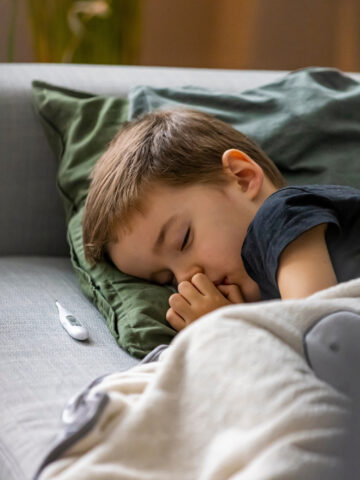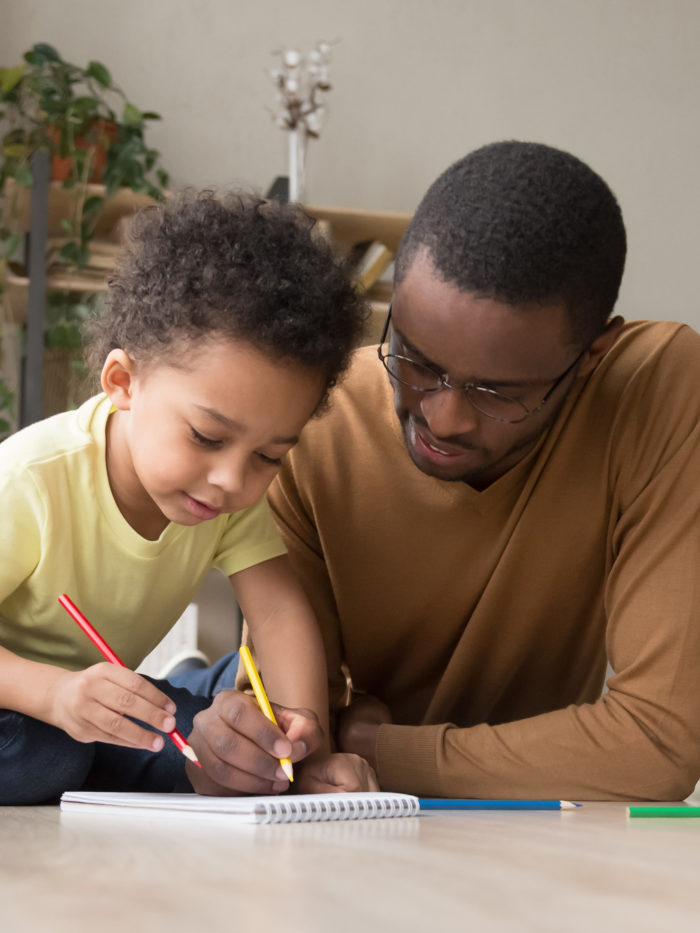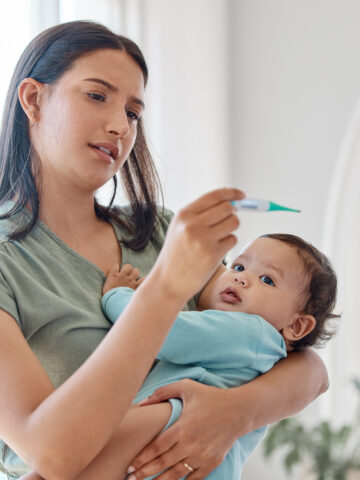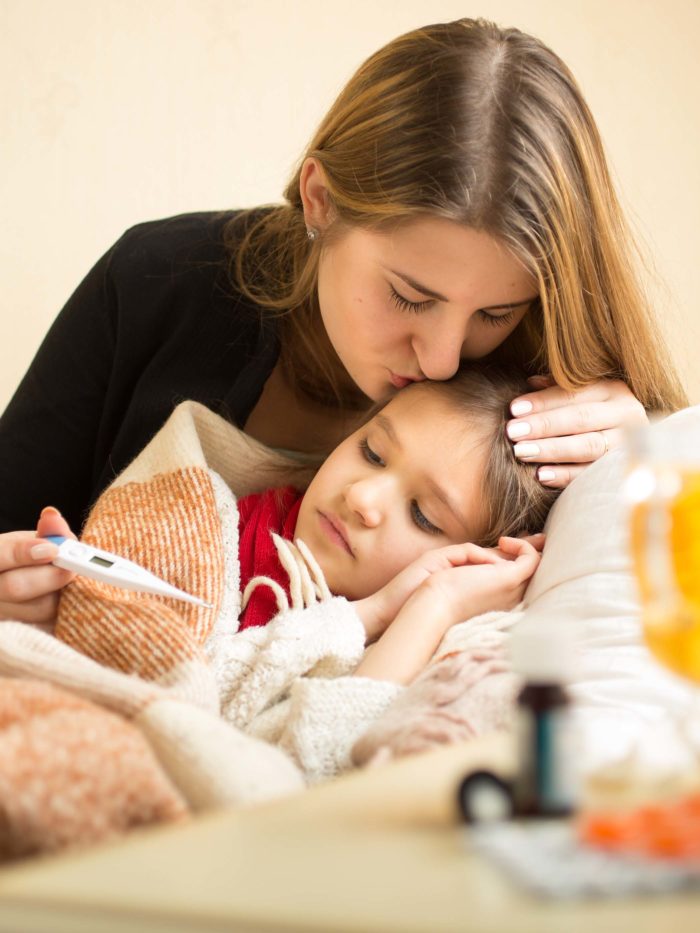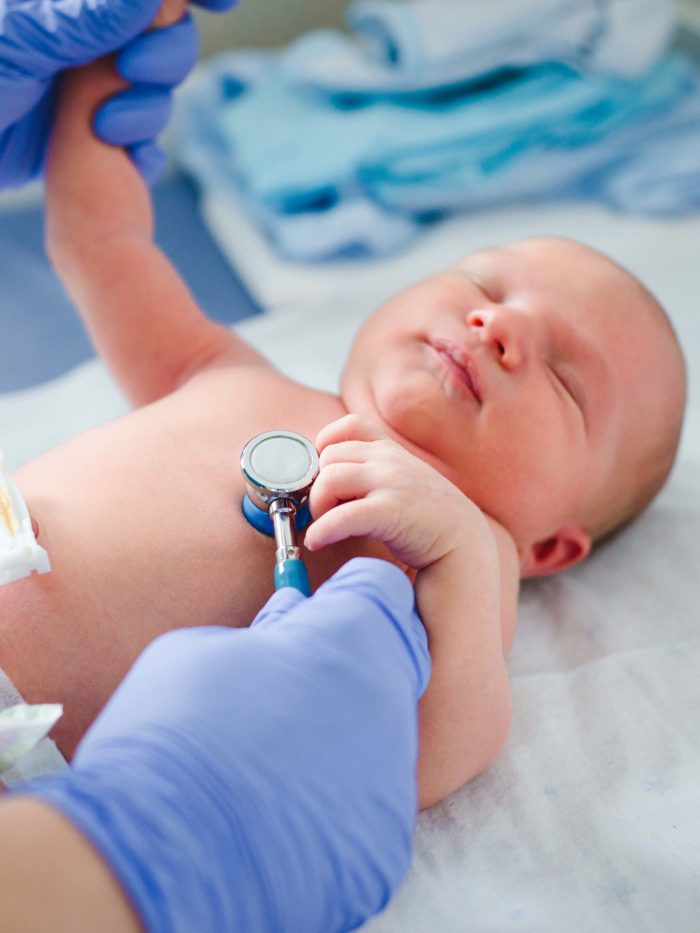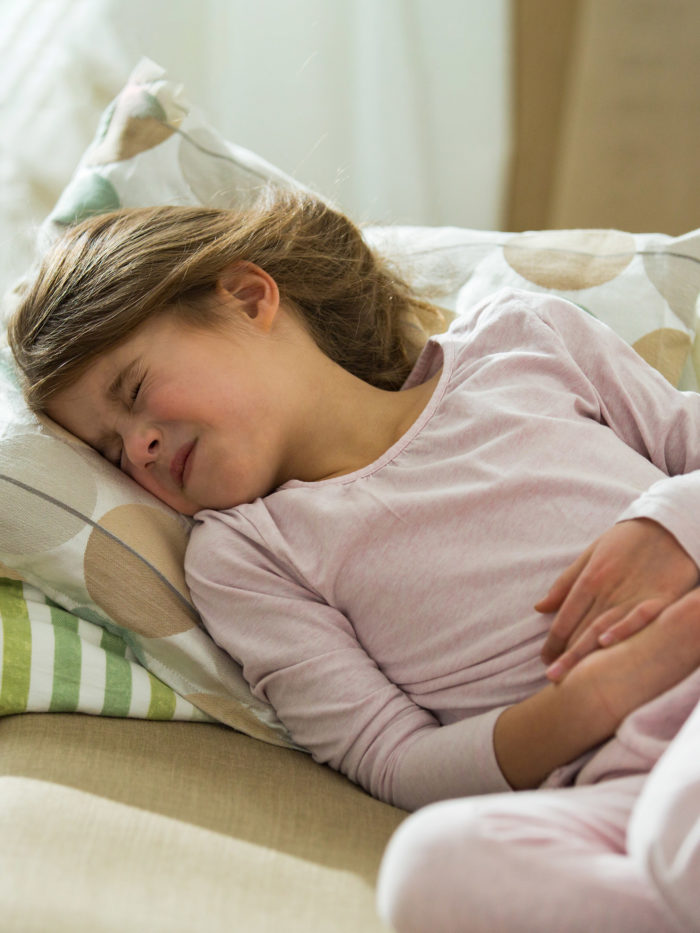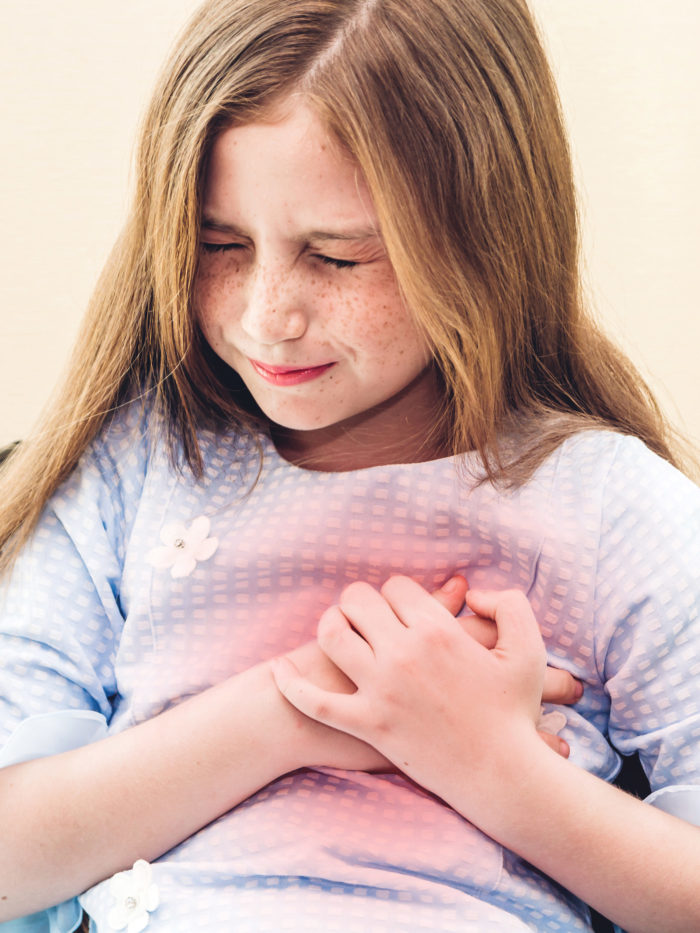GUIDE
Cold and Flu
Colds and flu, also known as the common cold and influenza, are two common illnesses that many families will encounter during the year. These illnesses are caused by different viruses and may make kids and teens feel sick for days or weeks at a time. Unfortunately, these illnesses may also spread to other family members, classmates and friends. In this guide, our experts offer advice to help reduce the risk of colds and flu, treatment strategies and when to call the doctor.
Find a pediatrician
The CHOC Primary Care Network of pediatricians is here to partner with parents to help you keep your child healthy.
Find a CHOC Primary Care Network pediatrician
Get 24/7 advice from CHOC
Cold and Flu Overview
October to April is the typical cold and flu season due to weather and temperature changes, kids going back to school and more indoor activities where viruses can spread more easily.
What is the common cold?
A cold is an infection of the upper respiratory system. This just means it can affect the nose, throat and sinuses. A cold virus gets inside your body and makes you sick. The rhinovirus is the most common cold virus, but more than 200 viruses can cause colds. Because there are so many, there isn’t a vaccination, or shot, to prevent you from getting colds.
What is influenza (flu)?
Influenza (the flu) is a very contagious viral infection of the respiratory tract (nose, throat, and lungs) caused by the influenza virus. The flu can make someone feel sick for up to 7 to 10 days.
Cold and flu symptoms
When people have the flu, they usually feel worse than they do with a cold. Most people start to feel sick about two days after they come in contact with the flu virus.
| Common cold | Flu |
|---|---|
| Low fever | High fever |
| Body chills | Body chills |
| Stuffy/runny nose | Shortness of breath |
| Feeling tired and not hungry | Fatigue |
| Sore/itchy throat | Sore throat |
| Cough | Cough |
| Chest congestion | Runny or stuffy nose |
| Muscle pains or body aches | |
| Headache |
Are some kids more at risk for coming down with colds or flu?
Kids, especially young kids, are susceptible to illness due to their developing immune systems. Once they begin attending daycare or preschool, they will be exposed to many common childhood illnesses. Younger infants who have older siblings that are in school will also tend to get sick more frequently, since their siblings are bringing home germs.
How can I tell the difference between the flu and COVID-19?
Both COVID-19 and flu may have symptoms ranging in severity. Kids who have been infected may show some or most of these symptoms, or they may be asymptomatic, where they don’t develop any symptoms at all. The only major symptom that points toward COVID-19 rather than flu is the loss of smell and taste.
In both COVID-19 and flu, it’s possible to spread the virus for at least one day before experiencing symptoms. Because of this, it’s important to get tested for COVID-19 and self-quarantine immediately following potential exposure to infection.
Call CHOC’s free 24/7 Nurse Advice Line
Our free nurse helpline is open 24/7 to address questions about your child’s health.
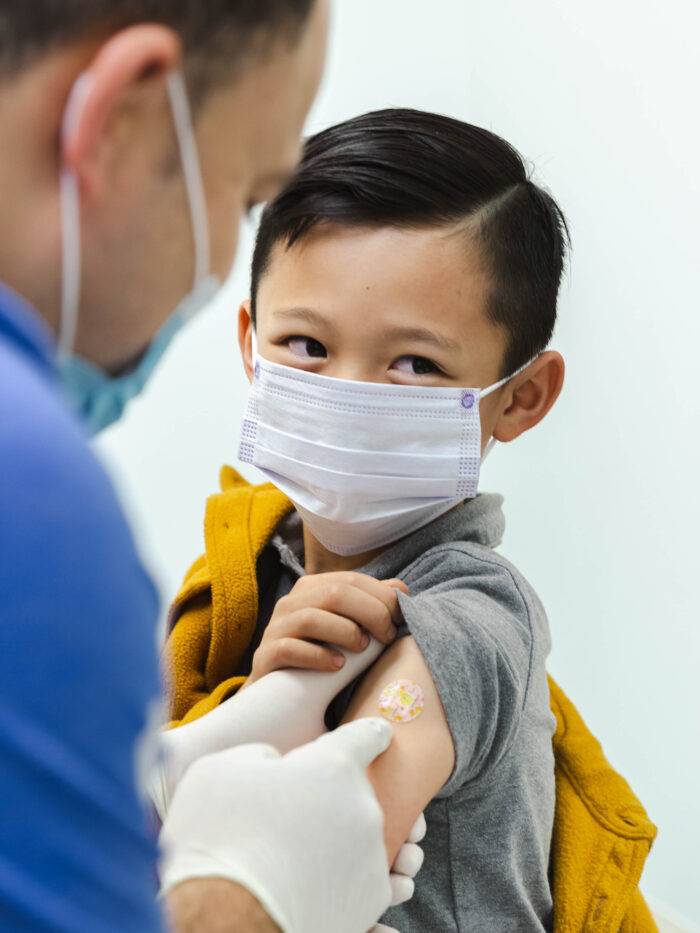
Why your family should get their annual flu shot
Having your children get the flu shot as soon as possible will help avoid serious illness from the flu. Children as young as 6 months of age are recommended to receive the flu shot. Additionally, all members of your household should receive their annual flu shot to prevent spread.
Influenza shot FAQs
The American Academy of Pediatrics (AAP) recommends that children receive their influenza vaccine by late October, ideally before influenza begins circulating widely in the community. However, it is not too late to get a flu shot. Children and adults who have not yet received their annual influenza vaccine should still be vaccinated, as influenza activity often continues into the winter and spring, and vaccination can still provide protection later in the season.
There is no specific time of day that makes a flu shot more or less effective. Choose a time that is convenient and available for you and your physician.
Some patients experience low-grade fever, muscle and joint aches, headaches or nausea. You cannot get an influenza infection from the flu shot, but some patients can experience mild “influenza-like symptoms” for up to two days after receiving the vaccine. Some patients also experience redness and swelling around the injection site
Yes. Children can receive the flu shot and COVID-19 vaccine simultaneously. They can also receive any other necessary vaccines at the same time too.
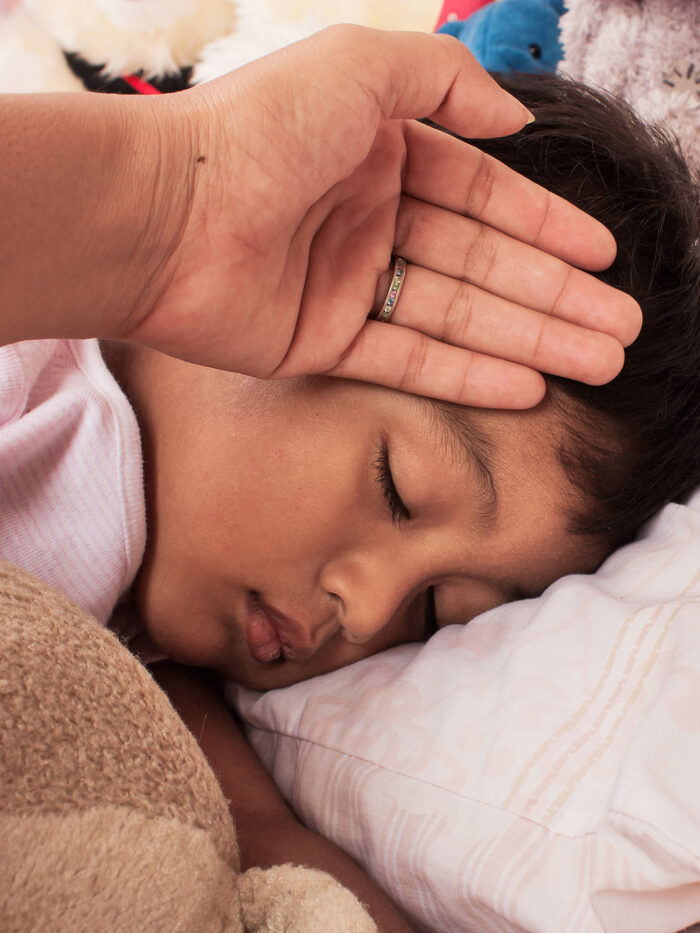
Cold and Flu Treatments
For kids whose immune systems are still developing, it’s important to prioritize comfort and relief from symptoms, and to prevent symptoms from getting worse.
How are colds and the flu treated?
Kids with mild cases of cold and flu usually doesn’t need medical treatment. Sometimes, doctors might prescribe antiviral medicine for some people who have the flu. This medicine works best if given within the first two days of the illness. It can make flu symptoms milder and shorten the illness by a couple of days. But it has some side effects, so discuss the pros and cons of taking it with your doctor.
When should I see the doctor for my child’s cold or flu?
You should call your doctor if your child has the following cold or flu symptoms:
- A fever in a baby less than 2 months old.
- A fever of 100.4 degrees or higher lasting more than three days.
- Labored breathing including wheezing, fast breathing or shortness of breath.
- Dehydration along with not eating or drinking.
- Constant ear pain.
If your baby is under 1 month old with a rectal temperature of 100.4 °F (38°C) or above, take them to the emergency department right away. Visit CHOC’s Fever Guide for more information.
Can I give my child over-the-counter cold and flu medicine?
Give acetaminophen, like Tylenol, or ibuprofen, like Motrin and Advil, for fever and aches.
Do not give aspirin unless your doctor tells you to. It has been linked to a rare but serious illness called Reye syndrome.
You can give over-the-counter cough or cold medicines to children over 6 years old if your doctor says it’s OK. Follow the package instructions carefully so you give the right amount. Do not give cold or cough medicines to children under 6 years old because they can cause bad reactions.
How can I help my child feel better?
If your child gets a cold or the flu:
- Offer plenty of liquids. Fever and appetite loss is common with the flu and can lead to dehydration.
- Honey can help loosen a stubborn cough in children older than 12 months of age. Give one to two teaspoons of honey at night. Do not give honey to children under 12 months old.
- Encourage your child to rest in bed or on the couch with a supply of magazines, books, quiet music, and perhaps a favorite movie.
- Dress your child in layers that are easy to add and remove during bouts of chills or fever.
- Running a cool-mist humidifier can help relieve coughs and runny or stuffy noses. Clean it after each use or at least once a day.
How can help relieve my child’s stuffy nose?
- For babies: put a few drops of saline (salt water) into the nose, then gently suction the mucus out with a bulb syringe. Do this no more than two to three times a day so that the inside of your baby’s nose does not get swollen or sore.
- For older kids: give two sprays of saline nose spray three times a day.
How long should my child stay home with a cold or flu?
Kids who are sick should stay home from school and childcare until they:
- Feel better.
- Have been fever-free for at least 24 hours without the use of a fever-reducing medicine.
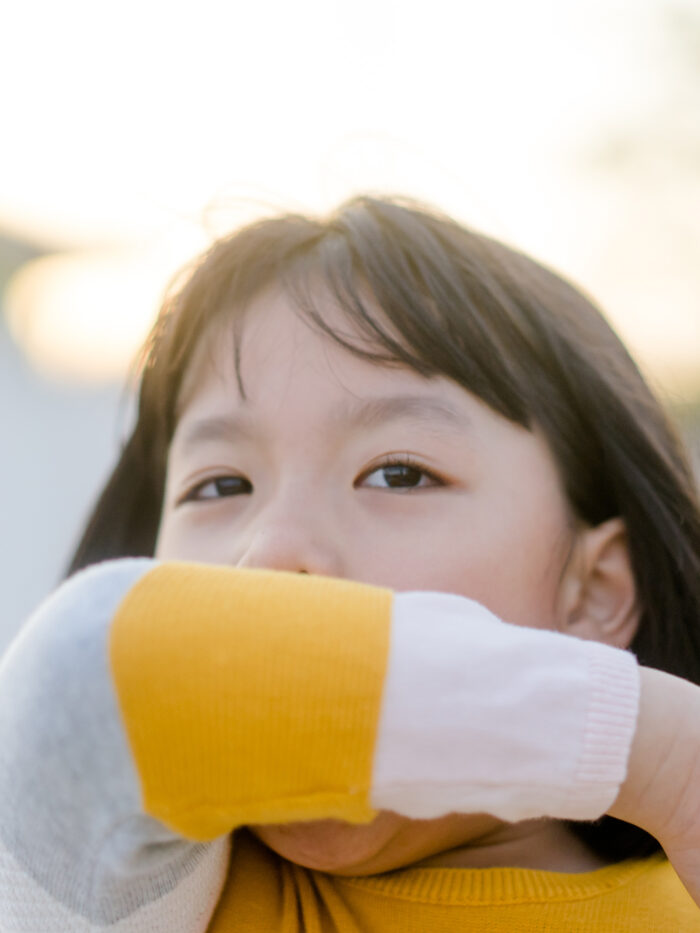
Cold and Flu Prevention Tips
With the change in seasons, colder weather and more time gathering indoors during the fall and winter, it’s common for kids to contract cold and flu viruses. However, practicing healthy habits can help reduce the risk of getting sick.
Tips for preventing flu in children and teens
People with the flu can spread it to others. Most experts think that flu viruses spread mainly by droplets made when people with flu cough, sneeze or talk.
To reduce the risk of getting the flu, kids should:
- Get their annual flu shot.
- Practice proper hand washing, especially before and after eating and using the bathroom.
- Stay away from people who have a fever.
- Mask when indoors or in large group settings.
Tips for preventing the common cold in children and teens
Because so many viruses cause colds, there isn’t a vaccine to protect against them. To help avoid catching one, kids should:
- Stay away from people who have a cold.
- Refrain from touching their mouth, nose or eyes.
- Avoid secondhand smoke.
- Practice proper handwashing, especially after blowing their nose.
- Avoid sharing towels, drinking glasses or eating utensils with someone who has a cold.
- Avoid picking up other people’s used tissues.
Is there anything I can do to prevent my child from getting sick, in general?
Although it’s common for your child to pick up a cold or the flu school or daycare, there are some common practices that can help keep your kids as healthy as possible, like:
- Stay up to date on vaccinations. Make sure your child has their influenza vaccine and COVID-19 vaccines to help prevent illness.
- Cover mouths while coughing. This can help prevent spread at school or daycare. Tell your kids to be like Dracula as they sneeze or cough in their elbow!
- Eat healthy meals and drink plenty of water. Make sure your kids are getting the nutrition they need with a variety of meals and snacks full of fruits and vegetables so they can get the vitamins and minerals needed to help boost their immune systems.
- Sleep. Make sure your child is getting plenty of sleep to help them stay well and healthy.
Find a CHOC Primary Care Pediatrician
From babies to teens, pediatricians from CHOC’s Primary Care Network partner with parents to offer immunizations, sick visits, sports physicals and more.
Cold and Flu Recommended Reading
Related guides
For more information, please visit our other health guides and articles:
- Where to go for care guide
- Immunization guide
- COVID guide
- Fever guide: English | Spanish
- RSV
The guidance on this page has been clinically reviewed by CHOC pediatric experts.
For more health and wellness resources from the pediatric experts at CHOC:
Sign up for the Kids Health newsletter.
The contents of this webpage, including text, graphics, audio files, and videos (“Materials”), are for your general information only. The Materials are not intended to substitute qualified professional or medical advice, diagnoses, or treatments. CHOC does not recommend or endorse any specific tests, physicians, products, procedures, or other information that may be mentioned on or linked to this webpage. Always call your physician or another qualified health provider if you have any questions or problems. If you think you may have a medical emergency, call your doctor, go to the nearest emergency department, or call 911.
For more health information for your family visit health.choc.org




